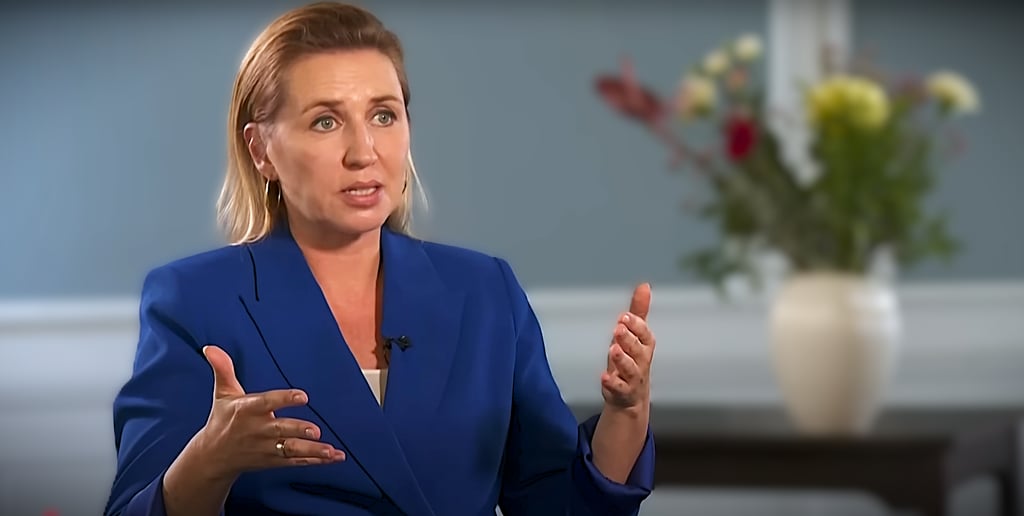Danish PM Says Netanyahu Has Become a Problem, Calls for Strong EU Action Over Gaza
Danish PM Mette Frederiksen declares Netanyahu a “problem” and urges the EU to consider tough action against Israel over the worsening Gaza crisis.
Raja Awais Ali
8/16/20252 min read


Danish Prime Minister Says Netanyahu Has Become a Problem, Calls for Strong EU Action Over Gaza Crisis
Danish Prime Minister Mette Frederiksen has made a bold and unprecedented statement, declaring that Israeli Prime Minister Benjamin Netanyahu “has become a problem.” Speaking on August 16, 2025, Frederiksen described the humanitarian crisis in Gaza as “horrific and catastrophic” and directly blamed Israel’s leadership for the worsening situation. She further criticized the continued expansion of illegal settlements in the West Bank, which she said is destroying any remaining hope for peace.
Denmark currently holds the rotating presidency of the European Union, giving Frederiksen’s remarks additional weight. She announced that if the humanitarian crisis in Gaza worsens further, Denmark will push other EU member states to adopt tougher measures against Israel. These measures could include targeted sanctions against Israeli ministers and settlement leaders, restrictions on trade and research cooperation, and potentially wider sanctions similar to those previously imposed on Russia.
What makes this statement especially significant is Frederiksen’s direct criticism of Netanyahu himself. World leaders rarely single out a sitting head of government so explicitly. But Frederiksen was clear, stating that Israel’s current leadership is the main obstacle to peace. In her words: “Israel would be better off without Netanyahu.” This sharp message signals a new level of European frustration with Israel’s policies.
The ongoing war in Gaza has already displaced thousands of civilians, destroyed critical infrastructure, and triggered a humanitarian emergency. Public opinion in Europe has increasingly turned against Israel, with citizens pressuring their governments to hold Netanyahu accountable. Frederiksen’s stance reflects this growing sentiment and positions Denmark as a leading voice for stronger EU action.
However, the path forward is complicated. Not all EU member states agree on imposing sanctions against Israel. Some governments fear such steps could harm diplomatic ties and further destabilize the Middle East. Despite these divisions, Denmark’s leadership suggests the EU may be moving toward a tougher approach, especially if conditions in Gaza deteriorate further.
On the other hand, Netanyahu has remained defiant. He insists that Israel’s actions are necessary for national security and claims that no amount of criticism will change his government’s policies. Yet this hardline stance risks isolating Israel even more on the global stage, as pressure from Europe and beyond continues to build.
Frederiksen’s remarks are already influencing international debate, signaling that Israel’s leadership could soon face unprecedented diplomatic challenges. While immediate sanctions are not guaranteed, branding Netanyahu as a direct problem shows that Europe is no longer willing to ignore his role in the ongoing crisis. This could mark the beginning of a significant shift in how the West deals with Israel’s government in the months ahead.